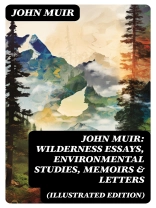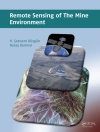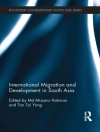In ‘John Muir: Wilderness Essays, Environmental Studies, Memoirs & Letters (Illustrated Edition), ‘ the reader is invited into the rich tapestry of Muir’s profound connection with nature. This collection features a meticulously curated selection of essays and letters that not only articulate the beauty of the American wilderness but also advocate for environmental conservation during a period that experienced rapid industrialization. Muir’s lyrical prose, woven with detailed observations and personal anecdotes, reflects both a Romantic literary ethos and a burgeoning ecological consciousness, providing timeless insights into the natural world and humanity’s relationship with it. John Muir, revered as the ‘Father of the National Parks, ‘ was born in 1838 in Scotland and later emigrated to the United States. His formative years on a Wisconsin farm, coupled with his extensive travels through the Sierra Nevada and other natural landscapes, deeply influenced his environmental philosophy. Muir’s experiences as a naturalist, scientist, and passionate advocate for the preservation of untouched wilderness led him to write works that would inspire future generations of conservationists and activists. This illustrated edition serves as an essential resource for anyone drawn to nature writing, environmental studies, or American history. Muir’s evocative eloquence and insightful observations make this collection a must-read for those seeking inspiration in both the beauty and fragility of our planet. Dive into these essays to discover the soul of a man whose love for the wild still resonates in today’s environmental discourse.
Об авторе
John Muir (1838-1914), fondly remembered as ‘Father of the National Parks, ‘ was a towering figure in American environmentalism and an eloquent advocate for the wild. Born in Scotland, Muir immigrated to the United States with his family in 1849, settling in Wisconsin. His abiding love of nature led him to traverse much of the American wilderness, a journey that fueled his passion for conservation. A prolific writer, Muir’s literary output was considerable, and his influential texts combined detailed observations of nature with a deeply philosophical perspective. His works include ‘The Mountains of California’ (1894) and ‘My First Summer in the Sierra’ (1911), which have inspired countless readers and activists even into the 21st century. The compilation ‘John Muir: Wilderness Essays, Environmental Studies, Memoirs & Letters (Illustrated Edition)’ provides an encompassing view of his written legacy, encompassing his essays, environmental studies, and personal correspondences. Muir’s literary style often reflects a transcendentalist philosophy, celebrating the connection between humanity and nature. His foundational role in the creation of the United States’ national parks and his co-founding of the Sierra Club in 1892 solidified his lasting impact on environmental policy and wilderness preservation. Muir’s contributions, both literary and practical, have made him an enduring symbol of environmental stewardship.












